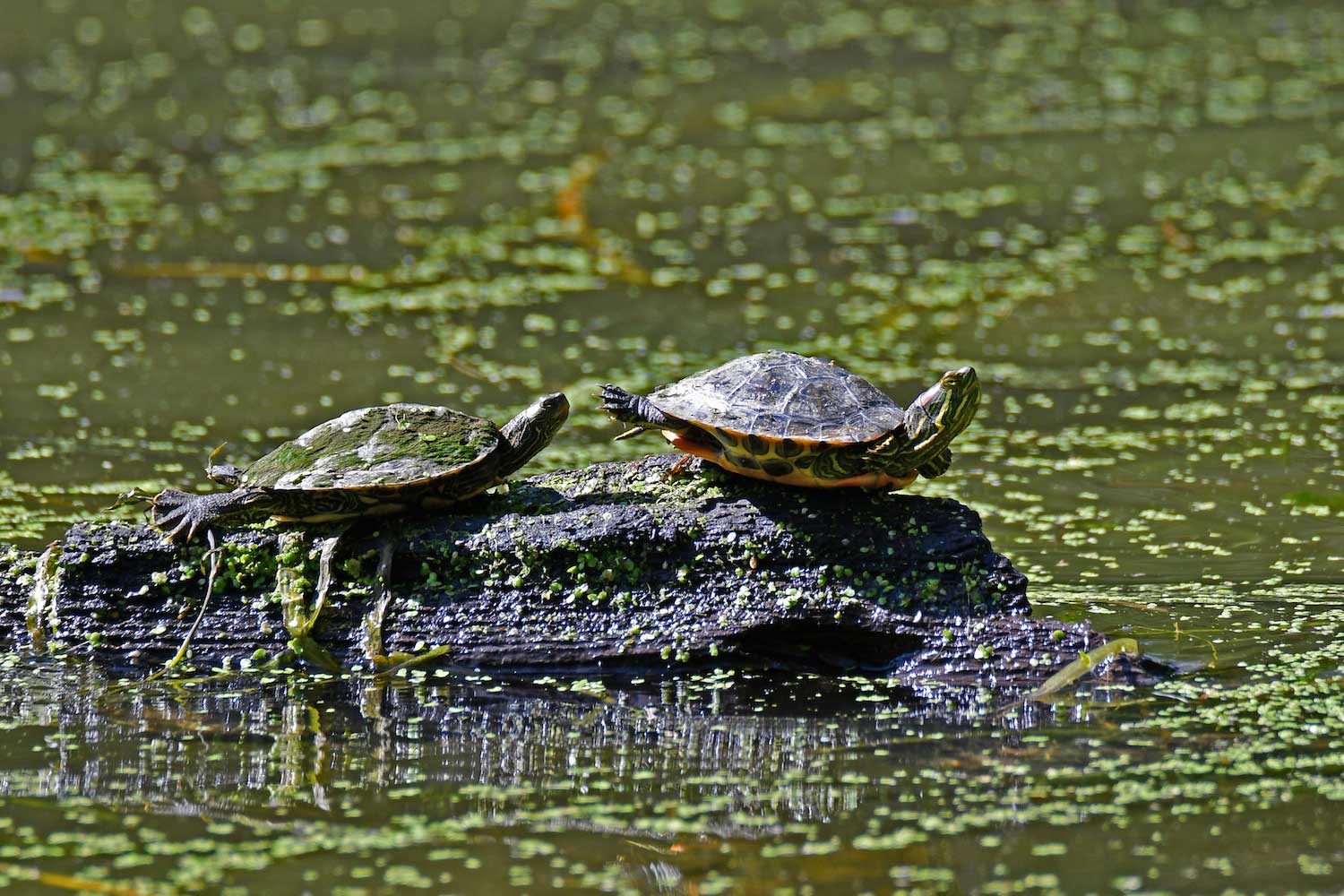What's the difference?: Habitat vs. ecosystem

The world of science is full of important terms that help us understand the world around us, but sometimes the similarities between these concepts can cause confusion when it comes to the terminology we use. Such is the case with habitats and ecosystems. These two terms seem to refer to the same thing and are even sometimes used interchangeably, but they are not quite the same.
A habitat is the place where an organism — be it a plant, animal or other living thing — makes its home and includes all the attributes, biological, chemical and physical, that sustain the organism, according to the U.S. Environmental Protection Agency. A barred owl's habitat is the forest where it lives, and a purple coneflower's habitat is the prairie where it grows. An ecosystem is a community of living things living in a particular area and the nonliving things that those living things interact with. In a forest habitat, the ecosystem includes all the living things that inhabit it, from the tallest trees to the tiniest insects, as well as the soil, air and water that are present. Ecosystems are about the interactions between all the living and nonliving things present in them.
To further understand these differences, consider a pond. A pond can be both a habitat and an ecosystem. It's a wetland habitat for the fish and turtles and plants and all the other living things that live within it. It's also an ecosystem, with all the living organisms in the pond, as well as the water and other non-living things, collectively forming a community.
Ecosystems are not always well defined, and they can be very big or very small, according to National Geographic. At one extreme is the vast ecosystem of the Atlantic Ocean. At the other end would be the tiny tide pools created when the tide moves out. Both these bodies of water have living things within them forming their own ecosystems.
While a pond may be easy to define based on its shoreline, this is not always the case. Think about a wooded area surrounded by a prairie or meadow. This includes two different types of habitat — forest and grassland — but they may not have exact boundaries. For this reason, ecosystems are often defined based on the predominant characteristics or species. So the above mentioned wooded area surrounded by a meadow may be classified as a forest ecosystem because trees are the predominant feature.
Ecosystems are significant because everything in the ecosystem is dependent on everything else in it, National Geographic reports. When one thing in an ecosystem is changed, it has a ripple effect on everything else. Some changes are sustainable or can be adapted to, but sometimes changes to ecosystems can be devastating for the species that live within them.
Across the globe, ecosystems and our planet's biodiversity face many threats, including climate change, invasive species, pollution, land and sea use changes and overexploitation, according to the World Wildlife Federation. While limiting the impacts of these threats will require global efforts, there are simple steps you can take at home to protect Earth and its ecosystems.
One easy first step would be to educate yourself and others about the importance of Earth's resources, according to the National Oceanic Atmospheric Administration. You can also volunteer to clean up your community, either on your own or with a group. Here are some other suggestions for how to protect our ecosystems and all the habitats within them:
- Reduce, reuse and recycle to try and reduce the amount of waste you generate.
- Use less water.
- Shop smarter by avoiding single-use items and buying less plastic.
- Opt for energy-efficient lightbulbs in and around your home.
- Plant trees around your home.
- Drive less by planning your trips wisely, carpooling or biking places.
- Look for non-toxic products to replace chemicals around your home.
- Make sustainable choices when buying seafood.
